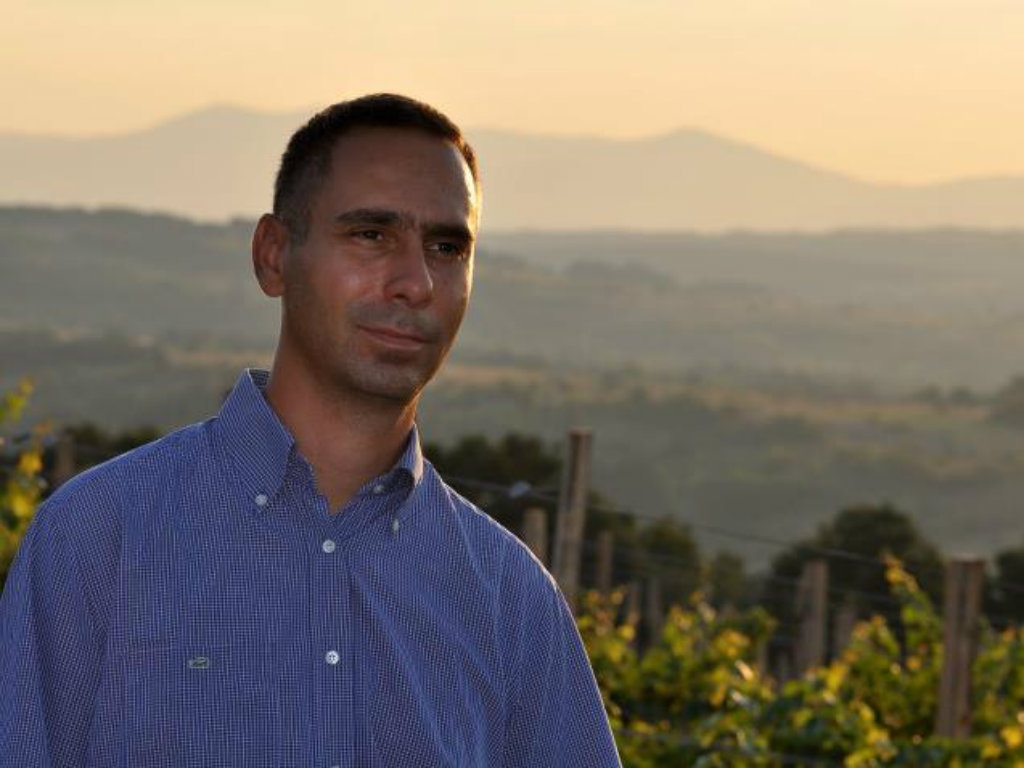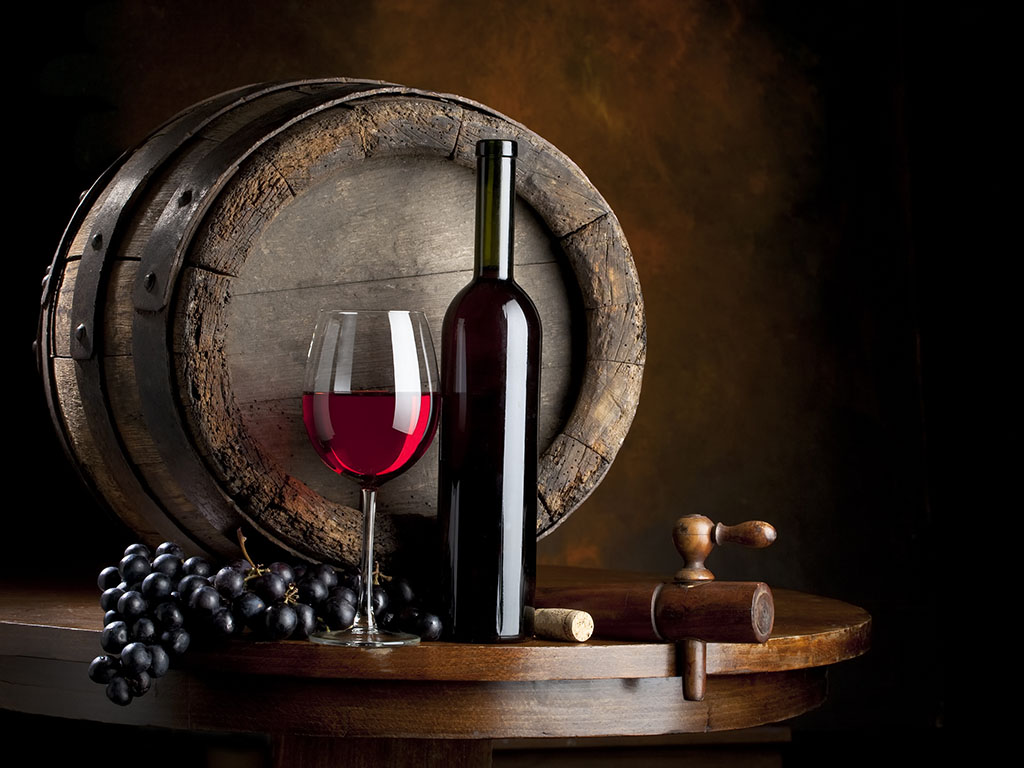WHO ARE THE WINEMAKERS OF SERBIA: Nikola Mladenovic Matalj – Negotinian
Source: eKapija
 Sunday, 27.05.2018.
Sunday, 27.05.2018.
 17:35
17:35
 Sunday, 27.05.2018.
Sunday, 27.05.2018.
 17:35
17:35
Nikola Mladenovic Matalj (Photo: mataljvinarija.rs)

The specific microclimate, the result of being surrounded by massive mountains and two rivers, has made this a winemaking region since the times of Rome.
The records say that Krajina’s wine has always been consumed in Europe as well, from which the region has always been earning very well. Its golden age came in mid-19th century when phylloxera swept through French vineyards. In 1887, the customs office in Radujevac saw over 2 million liters exported to Bordeaux alone, which the French paid for in gold.
In the early 2000s, Nikola Mladenovic Matalj, a resident of Negotin, started his winemaking career. A representative of a new generation of winemakers of Serbia, an expert, an enthusiast and an aficionado, Nikola is cordial, friendly and open.
The winery that now produces around 75,000 bottles a year was established by the Mladenovics as a family business (named after the family nickname). In 2004, they decided to first re-establish a neglected vineyard on the Kremenjaca hill. They planted new grape varieties, primarily Cabernet Sauvignon, invested in the equipment and set off on this adventure.
The Matalj winery leans on the tradition, but is well familiar with modern circumstances and trend, both in the production and using scientific achievements and technological innovations and in their approach to the market, marketing, approach to customers, planning the sales... “Winemaking can’t be exactly the same as it was 50 years ago”, Nikola opens his interview with eKapija.
(Photo: mataljvinarija.rs)

– We wanted to make a wine from our region, which is very specific, and with our own label. We wanted to use what the nature has provided us with and put a personal stamp on it.
The winery also produces Kremen Kamen, Terasa and Dusica.
Matalj owns a total of 30 hectares under grapevine, in three locations, in three different vineyard areas in the Negotinska Krajina, of a total of five.
– Each area has a different microclimate, depending on the geographic characteristics, the proximity to the Danube and so on. We knew that having only one location would not be able to provide us with the desired quality, so we aimed at having three. The first one is Kremenjaca, in the village of Tamnic, which gave Kremen its name. The second one is Terasa, in Mihajlovac on the Danube, after which Terasa Chardonnay and Terasa Sauvignon Blanc were named. The third one is Bukovo, where our new facility is located.
The rose Dusica (“Little Soul”), he says, was named so for being “a wine for the soul”.
– We have 75,000 bottles a year, and by moving to a new facility in 2017, next to which we’ve also built tasting rooms, as well as small accommodation capacities, we’ve opened the door to a much larger production, potentially up to 200,000. Since our sales are growing constantly, our potential for increasing the production is big. The biggest limitation, which we’ve now overcome, was a lack of space – our interviewee says.
Serbia is still the winery’s strongest market, and around 20% of what they produce is sold abroad. They are also constantly looking to penetrate new markets. Along with Denmark, Germany and Bulgaria, they are also negotiating about export to the USA and Belgium.
Illustration (Photo: JirkaBursik/shutterstock.com)

– In each private business you live with your job and the work day never ends. Why do I say this? Not because you need to work all the time. In fact, you can choose yourself when and how much you will work, or if you will work at all. I say this because the responsibility is always on you. Responsibility and your approach to work and life are not something that’s taught at school, but at home, in the family. Accordingly, I’ve inherited all this from my father.
Our interviewee points out that, in the winemaking process, the human factor and the nature factor are intertwined.
– The man is an inevitable part of winemaking. The winemaker needs to constantly balance between the plans and the annual yield.
The winemakers from Krajina were the first ones in Serbia to start harmonizing the geographic designation of origin with the system proscribed by the EU, back in 2011. Four years later, the Study on the protection of wine with the Negotinska Krajina geographic designation of origin was adopted, proscribing the terms of use of this label. The geographic designation of origin thereby linked the wines from the Negotin area with history and the tradition of quality, an additional asset for the local winemakers, especially in terms of marketing.
Wine and guitars
In addition to wine, Nikola says, he’s become fond of his guitar, which he has kept with him from his high school days. “I play all the time”, he says with a smile. He’s daydreaming about bringing his high school band back together.
Nikola Mladenovic Matalj graduated from the Faculty of Technology and Metallurgy in Belgrade. He is father to three girls.
M.M.
Companies:
 PMR Matalj Negotin
PMR Matalj Negotin
Tags:
Matalj Winery
Nikola Mladenovic Matalj
Nikola Mladenovic Matalj biography
Nikola Mladenovic biography
Negotinska Krajina
Negotin vineyards
geographic designation of origin
Negotin wines
wines from Negotinska Krajina
Who are the winemakers of Serbia
winemaker
winemakers
wineries in Serbia
Serbian wineries
export of wine
Serbian wines
production of wine in Serbia
production of grapes in Serbia
export of wine from Serbia
export of drinks
Kremen
Kremen Kamen
Dusica
Terasa
Terasa Chardonnay
Terasa Sauvignon Blanc
Miroc
Crni Vrh
Deli Jovan
Danube
Timok
Tamnic
Mihajlovac
technologist
Cabernet Sauvignon
Comments
Your comment
Most Important News
Full information is available only to commercial users-subscribers and it is necessary to log in.
Follow the news, tenders, grants, legal regulations and reports on our portal.
Registracija na eKapiji vam omogućava pristup potpunim informacijama i dnevnom biltenu
Naš dnevni ekonomski bilten će stizati na vašu mejl adresu krajem svakog radnog dana. Bilteni su personalizovani prema interesovanjima svakog korisnika zasebno,
uz konsultacije sa našim ekspertima.


 Izdanje Srbija
Izdanje Srbija Serbische Ausgabe
Serbische Ausgabe Izdanje BiH
Izdanje BiH Izdanje Crna Gora
Izdanje Crna Gora


 News
News






